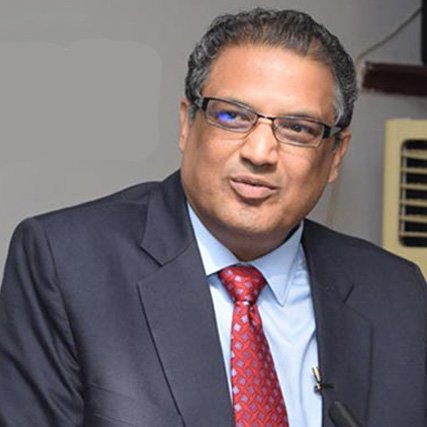Nowadays, there is a renewed debate that Pakistan’s provinces are so large that it is becoming difficult to run them administratively. The argument being given in favor of creating new provinces is that Pakistan’s provincial model is unrealistic. Intellectuals in Islamabad are arguing that Punjab is larger than 180 countries in the world, so it should be divided into five administrative units, Sindh and Khyber Pakhtunkhwa should be divided into three provinces, and Balochistan should be divided into two.
This scumbag has a difference of opinion with the great intellectuals and powerful people on this issue. The first thing is that the four provinces have a separate past, history and culture. At the time of the formation of Pakistan, apart from Bengal, 3 provinces were mentioned in the Pakistan Resolution. The province of Balochistan was formed later, but all these arrangements are under the Pakistan Establishment Agreement, which had the support of the Quaid-e-Azam. As far as the difficulty of running large provinces is concerned, this common man completely agrees that if the matter is about transferring powers to the lower level, then the new provinces will still be larger than many countries in terms of size. The formation of new provinces will give rise to linguistic and cultural conflicts. When there is a better constitutional and legal solution than provinces, then there is no need to create new provinces. In my opinion, transferring powers to the district level is a much better solution. This has been tried during the dictatorial era of General Musharraf and this system was very successful except for a few shortcomings. The constitution already clearly states details in this regard. Originally, this district system came during the dictatorship era, so it should be brought into line with the democratic system, prevent corruption in it, and promote the running of the system with the help of competent and professional people in the districts. The district system had brought power to the people. Decisions were being made at the local level and these decisions were in the interest of the local people. But the districts still lacked CAPACITY. There were no planning professionals, no architects at this level, no traffic engineers, no environmental experts. Then there was a lack of checks and balances. There were also some structural flaws, such as the decision to abolish town committees and municipal committees. It turned out to be wrong, but in principle, the district system was very close to democracy. Soon, the province took away the financial and administrative powers of the districts. The bureaucracy was not satisfied until the outdated system of the Deputy Commissioner was restored.
If the purpose of creating new provinces is effective administrative control, better management and better planning, then it would be more useful to take this purpose to the districts. The district system already exists, if provinces are created, billions of rupees will be spent on their headquarters, provincial assemblies will be formed, secretariats will be formed, and so on, an unstoppable chain will begin. The infrastructure is already in place in the districts, it just needs to be increased in capacity.
In my humble opinion, the problem will not be solved with new provinces because the real issue is the transfer of powers, which no one in Pakistan seems ready for. Once upon a time, the federation used to be strong and all the provinces used to be angry with the federation. The main reason for the separation of East Pakistan was the failure to transfer powers from the federation to the provinces. After the 18th Amendment, by God’s grace, powers were transferred from the federation to the provinces, but the provinces have become the new Lyallpuri clock tower. Earlier, the federation was a dictator, now the provinces have become the new dictators. Earlier, the provinces and regions were poor or rich, developed or backward, with the financial powers of the Prime Minister. Now, thousands of billions of rupees are with the Chief Ministers, who fund the districts at their discretion. Earlier, the federation was rich and the provinces were poor, now the federation is poor and the provinces are rich. The constitution and law clearly state that the provinces were to divide their emirates into districts, but they are not forming provincial finance commissions. Now the districts are hungry and the provinces squander wealth and funds at will, which is clearly unfair to the people, both constitutionally and legally.
Look at the two best countries in the world, America and Britain. In both, local government has the most powers. There is either a center or a local government. Provinces or states are of very little importance in the governance system. I remember that I was staying with my relatives in the small town of Bochum in Germany. My visa was coming to an end. My relatives did not want to let me come. I was worried that I would have to go to the capital Frankfurt (at that time the capital was not Berlin) to extend my visa or I would have to visit the capital of a province. But my late dear Azhar Bhatti took me to the post office in Bochum. There he paid a few German marks and my visa was extended. That is, representatives of the Foreign Office are also present in small towns. If we also want to have effective governance, then devolution of powers to the district level is the best formula. There is no need for constitutional amendment or making any law. The entire system is there, we just have to follow it. Once it has been implemented, if its shortcomings are addressed, it can easily be implemented in an even better form.
Pakistan has been a place for new experiments since the beginning. Provinces have always been a sensitive issue for this country. Sindh, Balochistan and Khyber Pakhtunkhwa have had complaints from both the federation and Punjab, so a new rift should not be opened by creating new provinces. Pakistan is already entangled in political, economic and security issues. It will not be free from danger to raise provincial, linguistic and national issues. Misunderstandings have spread in East Pakistan due to the provincial fault line. Even now, each province has a complaint office, but they cannot be resolved or these complaints can be prevented from arising. The modern state brings the people closer through communication and highway development and focuses on the country’s problems by delegating powers to the lower levels. Education, health, sanitation, conciliation courts should be handed over to the district system. The provinces should formulate policies and distribute funds to the districts, and the center should keep checks and balances on the economy, defense and policies. This is the successful and most modern formula for good governance.
 Colors
Colors  View Books
View Books 



